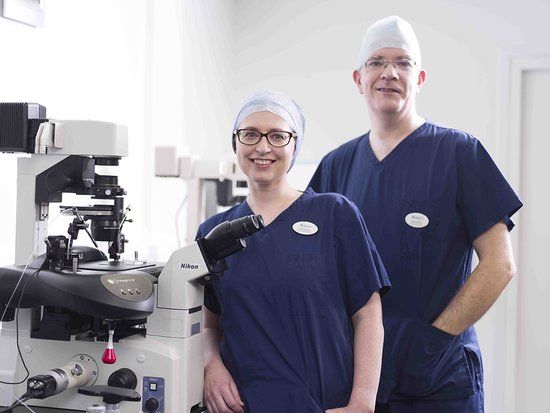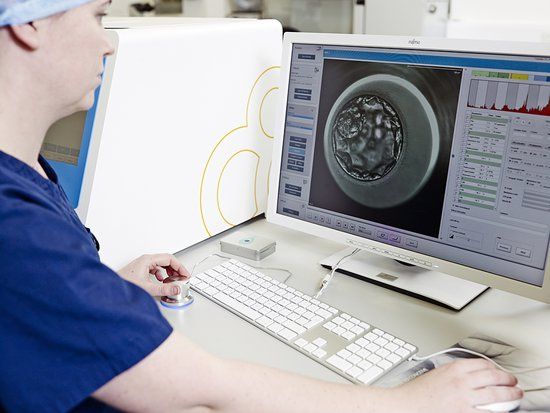At Manchester Fertility one of the treatment options we offer is extended culture and blastocyst transfer which can help improve your chances of successful pregnancy.
Extended culture is when our expert embryology team closely monitor the development of an embryo in our laboratory incubator, allowing it to develop for longer after fertilisation.
These crucial extra days of monitoring allow us to select only those embryos which have a good chance of implanting and therefore a better chance of a successful pregnancy, in our patients who have a good IVF prognosis.
In normal embryo transfers, embryos are transferred into your uterus two to three days after fertilisation, when they reach the ‘four to eight -cell’ stage. But blastocysts develop for five to six days after fertilisation before they are transferred. Not all embryos will develop to become blastocysts – sometimes embryos stop developing at the ‘four- eight cell’ stage.
Extended culture is helpful if you’ve produced good quality embryos before, yet not achieved a pregnancy.
If you have more than one good quality blastocyst following the procedure, we will also advise on the option of single blastocyst transfer, which helps to reduce the risk of multiple birth. As with normal embryo transfer, any remaining blastocysts can be frozen and stored for future use.
Our expert team of embryologists will advise on whether extended culture is suitable for you or whether you would be better to have your embryo transfer earlier.
And remember – at Manchester Fertility we don’t charge you for extended culture and blastocyst transfer. If it is a viable option for you, then it will be carried out at no extra cost.
Last updated: 8th May 2012





